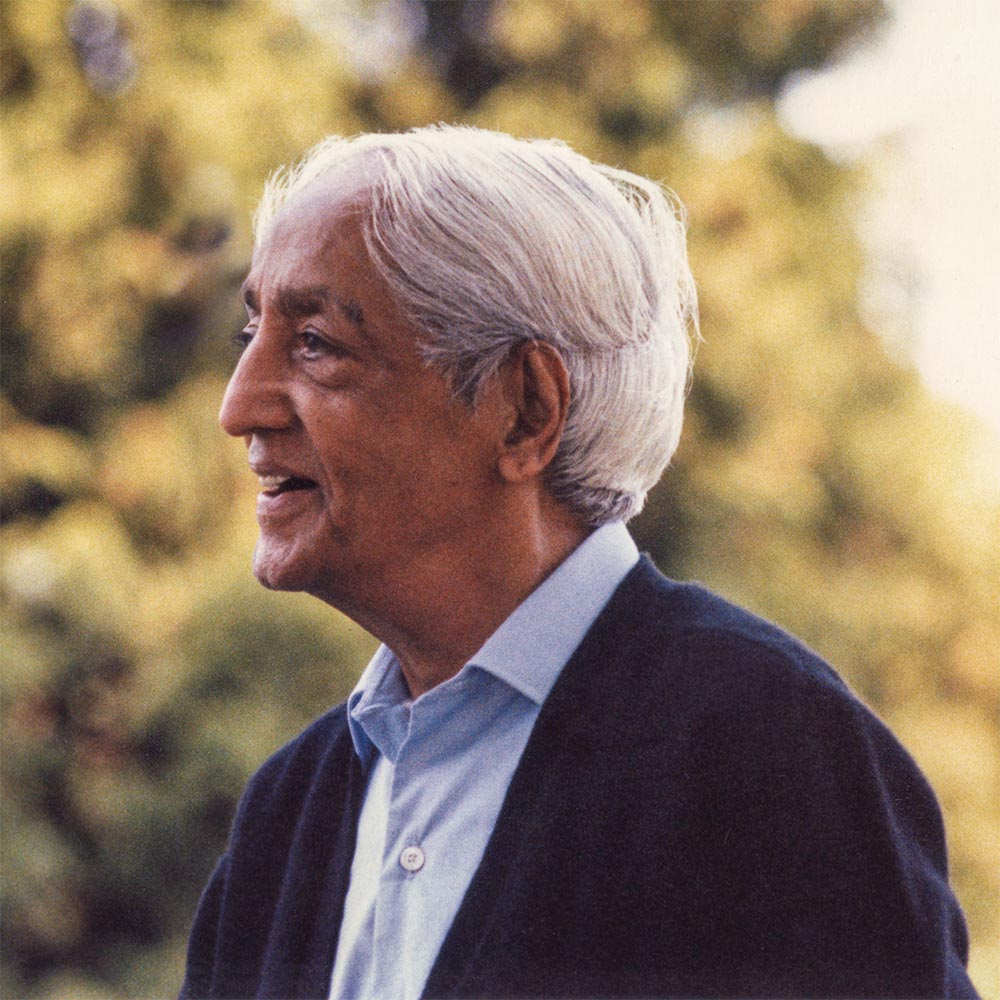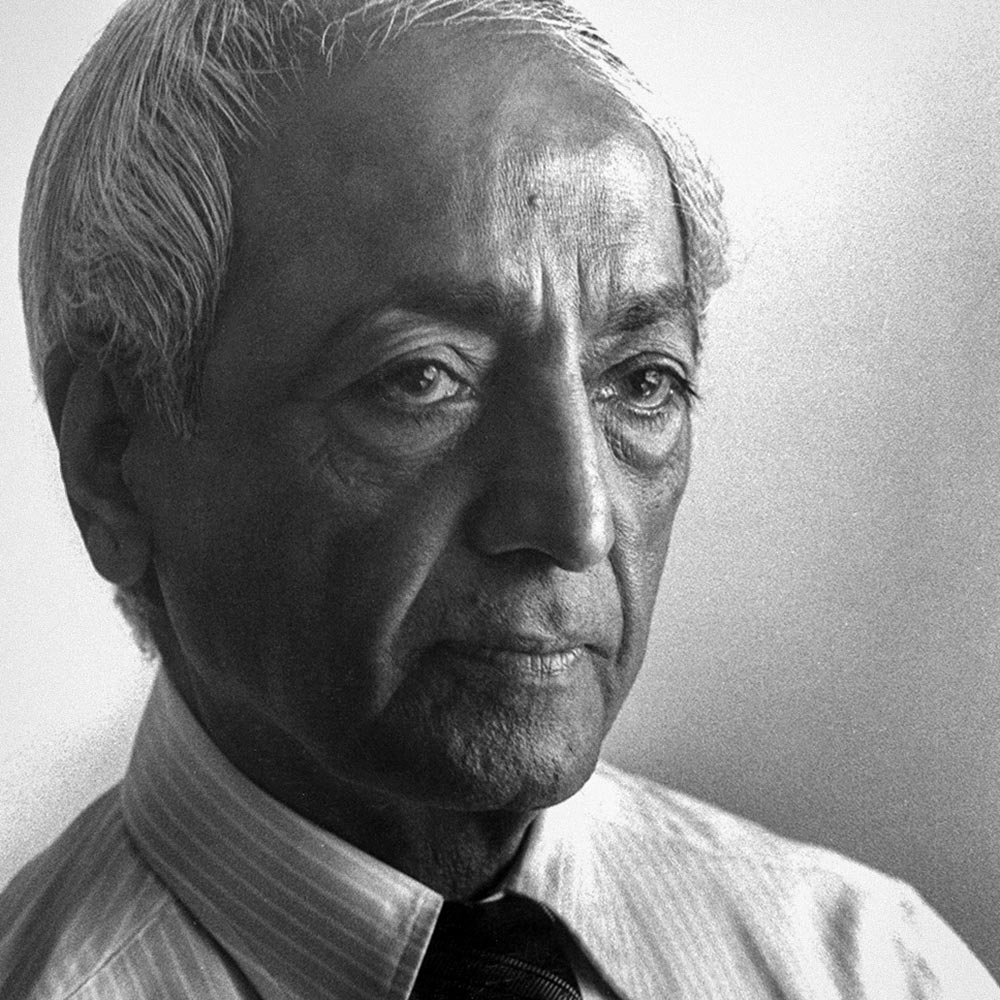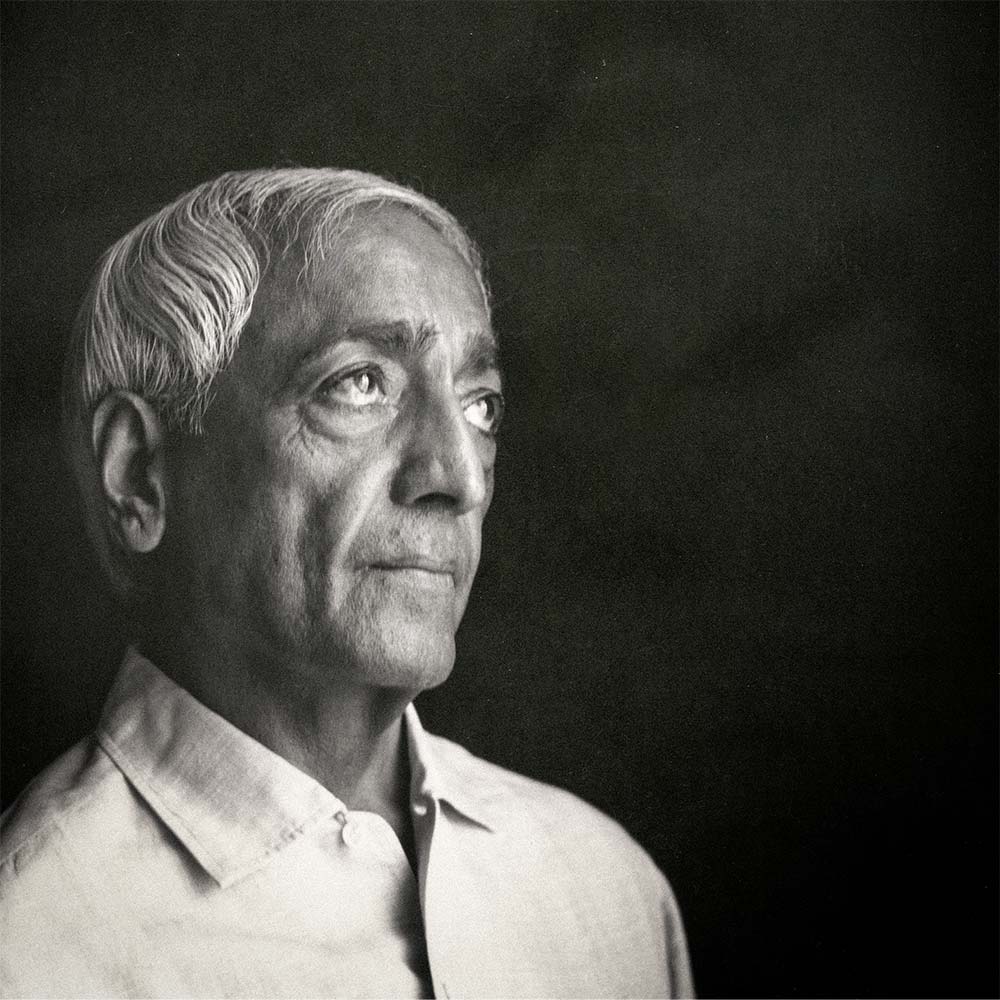In emptiness alone can there be creation.
Read More
When desire and time are completely ended, there is absolutely nothing, and therefore that is the universe, that emptiness which is full of energy.
Krishnamurti, The Ending of Time
Read More
Meditation is the ending of thought and the beginning of emptiness.
Read More
The activity of all seeking is from emptiness and fear.
Krishnamurti, Can the Mind be Quiet?
Read More
The sadness of life is this: the emptiness that we try to fill with every conceivable trick of the mind. But that emptiness remains.
Krishnamurti, The Only Revolution
Read More
We are empty, and we have tried to fill that emptiness with such trivialities as belief, opinion, judgments, and with political, so-called religious and artistic activities.
Krishnamurti, Can the Mind be Quiet?
Read More
Addiction to knowledge is like any other addiction; it offers an escape from the fear of emptiness, of loneliness, of frustration, the fear of being nothing.
Krishnamurti, Commentaries on Living 1
Read More
Fear is the awareness of our inner emptiness, loneliness and poverty, and of not being able to do anything about it
Krishnamurti, The Only Revolution
Read More
The mind penetrates deeply up to a point, and below that point there is the feeling of dark emptiness.
Krishnamurti, Tradition and Revolution
Read More
Am I willing to face absolute emptiness?
Krishnamurti, The Ending of Time
Read More
There is fear of being empty. But if you observe that emptiness, that inward poverty, without anxiety, then out of it comes untold riches.
Krishnamurti, The World Within
Read More
If we are able to face emptiness, to be with that aching loneliness, then fear altogether disappears and a fundamental transformation takes place.
Krishnamurti, Commentaries on Living 1
Read More
If the mind is convinced of the impossibility of filling the emptiness, the loneliness, then it is capable of bringing in itself a transformation, a revolution.
Krishnamurti, The World Within
Read More
Out of real emptiness, quietness, there is a seeing.
Krishnamurti, Tradition and Revolution
Read More
When there is awareness of emptiness without choice, without condemnation or justification, then in that understanding of ‘what is’, there is action, and this action is creative being.
Krishnamurti, The First and Last Freedom
Read More
These quotes only touch on the many subjects Krishnamurti inquired into during his lifetime. His timeless and universal teachings can be explored using the Index of Topics where you will find texts, audio and video related on many themes. Another option is to browse our selection of curated articles or more short quotes. Krishnamurti’s reply when asked what lies at the heart of his teachings can be found here. Many Krishnamurti books are available, a selection of which can be explored here. To find out more about Krishnamurti’s life, please see our introduction and the biography. We also host a weekly podcast, and offer free downloads. Please visit our YouTube channel for hundreds of specially selected shorter clips. Below, you can learn more about Krishnamurti and our charity which he founded in 1968.

Who Was Krishnamurti?
J. Krishnamurti (1895-1986) is widely regarded as one of the greatest thinkers and religious teachers of all time. He spoke throughout the world to large audiences and to individuals, including writers, scientists, philosophers and educators, about the need for a radical change in mankind. Referring to himself, Krishnamurti said:
He is acting as a mirror for you to look into. That mirror is not an authority. It has no authority, it’s just a mirror. And when you see it clearly, understand what you see in that mirror, then throw it away, break it up.
Krishnamurti was concerned with all humanity and held no nationality or belief and belonged to no particular group or culture. In the latter part of his life, along with continuing to give public talks, he travelled mainly between the schools he had founded in India, Britain and the United States, which educate for the total understanding of man and the art of living. He stressed that only this profound understanding can create a new generation that will live in peace.
Krishnamurti reminded his listeners again and again that we are all human beings first and not Hindus, Muslims or Christians, that we are like the rest of humanity and are not different from one another. He asked that we tread lightly on this earth without destroying ourselves or the environment. He communicated to his listeners a deep sense of respect for nature. His teachings transcend man-made belief systems, nationalistic sentiment and sectarianism. At the same time, they give new meaning and direction to mankind’s search for truth. His teaching is timeless, universal and increasingly relevant to the modern age.
I am nobody. It is as simple as that. I am nobody. But what is important is who you are, what you are.
Krishnamurti
Krishnamurti spoke not as a guru but as a friend. His talks and discussions are based not on tradition-based knowledge but on his own insights into the human mind and his vision of the sacred, so he always communicated a sense of freshness and directness, although the essence of his message remained unchanged over the years. When Krishnamurti addressed large audiences, people felt that he was talking to each of them personally, addressing their own particular problem. In his private interviews, he was a compassionate teacher, listening attentively to those who came to him in sorrow, and encouraging them to heal themselves through their own understanding. Religious scholars found that his words threw new light on traditional concepts. Krishnamurti took on the challenge of modern scientists and psychologists and went with them step by step, discussing their theories and sometimes enabling them to discern the limitations of their theories.
Krishnamurti left a large body of literature in the form of public talks, writings, discussions with teachers and students, scientists, psychologists and religious figures, conversations with individuals, television and radio interviews, and letters. Many of these have been published as books, in over 60 languages, along with hundreds of audio and video recordings.

The Krishnamurti Foundation
Established in 1968 as a registered charity, and located at The Krishnamurti Centre, Krishnamurti Foundation Trust exists to preserve and make available Krishnamurti’s teachings.
The Foundation serves a global audience by providing worldwide free access to Krishnamurti videos, audio and texts to those who may be interested in pursuing an understanding of Krishnamurti’s work in their own lives.
In describing his intentions for the Foundations, Krishnamurti said:
The Foundations will see to it that these teachings are kept whole, are not distorted, are not made corrupt.

